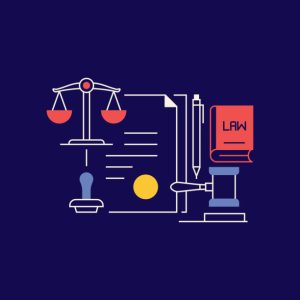
Non-Disclosure Agreement: Should I Sign?
This article is written by Gary Pinchen the principal at A Whole New Approach. He is not a lawyer, nor is AWNA a law firm. Recently I wrote about non disclosure agreements relating to sexual harassment claims at sexualharassmentaustralia.com.au, (AWNA own this site). “Non-disclosure agreements: How they benefit abusers“. The article got an extraordinary amount of clicks and in turn phone calls here. So I thought I would expand out on the topic in more detail to the wider workplace community. Its an important read for anybody considering signing a employment contract (restraint clauses etc), or a settlement agreement (these always come with conditions). What you sign can have profound consequences for you and your family
A non-disclosure agreement (NDA), or confidentiality agreement, is a legally binding contract that establishes confidentiality between parties. Commonly established before the commencement of employment in order to access company information. However there is no stipulation that an NDA cannot be agreed upon and signed during or after employment. And often are. There are two types of NDA agreements. First, a mutual agreement where both parties agree to keep information confidential. Often done during business agreements with other companies or during a dispute settlement. The second type is a non-mutual or unilateral NDA where only one party is bound to uphold the confidentiality agreement. Most common when beginning at a new company.
What’s in the agreement
NDA’s are common agreements and have been perfected over the history of company law and the corporate industry to be inherently straightforward and simplistic. It will specify what information is protected (common examples include customer information, financial information, and operations). The appropriate use of information, and the length of time the NDA is upheld for. Some are indefinite, where others can be 5, 10, 15 years depending on the information and industry. Every NDA is curated for a specific purpose, and different in every industry. There are exclusions to what can be included in an NDA. NDA’s cannot include information that is considered common knowledge or easily accessible by a third party. Or independently researched (easily accessible information online).
What happens if you breach a Non-Disclosure Agreement?
The breach of an NDA is not inherently illegal, however it does allow an employer to sue an employee and potentially incur financial penalties for the breach. Often an employee will be asked to pay financial damages and possibly even the employer’s legal costs. An injunction can also be placed prohibiting someone from doing a certain action that is relevant to their NDA. This can include not working for a certain field or a certain distance from your employer. Not every breach of an NDA will result in an employee being sued and incurring a financial penalty. However it is a viable option that most employers will act upon. If not to punish the employee, but to also set an example to other workers in the company.

Advantages of signing a Non-Disclosure Agreement
There are a number of factors that should be considered prior to signing an NDA. NDA’s are inherently to benefit the employer and protect their information, assets, clients and more. However, there are also benefits that an employee should consider before signing. Because an NDA is a legally binding document there is a greater scope of protection and enforceability that is granted to both employer and employee.
Commencing new employment
When commencing new employment a well executed NDA agreement will provide clarity and confidence on how information is expected to be treated and shared. This may also provide clarity in an employee’s role, provide insight on their level of seniority, or professional relationship expectations. It may also provide confidence in a new role to feel ‘part of the team’ as they have knowledge that is not readily accessible to the general public. Therefore, the employee can feel as though they have more easily assimilated with the culture of the workplace or their expectations with the rest of the team or company as they know the secrets of the business.
Akin to a secret handshake or password only known to company employees. Furthermore, the act of signing an NDA can facilitate the form of a positive employee-employer relationship as the employee is demonstrating that they are aligning themselves with the goals and intentions of the brand and can show commitment. Additionally, a well executed NDA will stipulate the consequences of breaking the NDA contract. Therefore, if there is a need for dispute resolution then the process is hypothetically straightforward and simple as all parties are aware of the expectations.
List of expectations
Reducing the need to take a more formal, expensive, and time consuming process, such as the formal court system, if further negotiations or dispute resolution are required. Additionally, not all circumstances where there is a breach of an NDA agreement is done due to malice or an intention to harm. Therefore, an explicit list of expectations can help keep a professional and friendly workplace relationship between the employee and employer. Even if there is a need for a dispute resolution process.

Sexual harassment, bullying and discrimination settlements
If there were to be a dispute between employer and employee, particularly in cases of sexual harassment, bullying, or discrimination, there may also be a benefit to signing an NDA for both parties. It is dependent on the employee and nature of the dispute, however there is a bittersweet benefit to an employer not disclosing an employee’s involvement in disputes such as sexual harassment. Particularly evident for female employees, there is an unfortunate but inherent stigma associated when a victim of workplace sexual assault tries to incur a public dispute with their employer. Especially if the assault is more nuanced than repeated explicit acts.
There is a threshold of tolerance to what is deemed appropriate when arguing sexual harassment that does not match section 789FF of the Fair Work Act 2009 (Cth) qualifications of what is considered sexual harassment. Therefore, if a female employee tries to publicly dispute with their employer on their treatment during their employment. Even if by definition it is sexual harassment, but it is considered under the threshold of what is deemed necessary or appropriate then there may be greater repercussions for the employee when trying to find further work. Employers are more hesitant to employ people who have a history of dispute with their employer.
Disputes remain private
Therefore, it may be more beneficial for the employee to sign a NDA in order to keep their disputes private between themselves and their employer. This advantage is also appropriate for employees who live in a small town where information is easily spread and wish to find further employment in the same location. Additionally, employees who hold a senior position where there is limited availability for similar positions in other companies. Sometimes the act of an employee incessantly pursuing a dispute, depending on the circumstances, is more harmful on the employee than the reputation of the employer.
There is also a benefit to the employer whose reputation is not associated with certain disputes and there is a greater opportunity to maintain a resemblance of an employee-employer relationship. It is highly dependent on the employee, the nature of the dispute, the role, and employees location. While a difficult decision, it may be in the best interest and benefit to agree to certain dispute NDA agreements.

Disadvantages of signing a Non-Disclosure Agreement
There are inherently greater disadvantages to signing an NDA agreement for an employee as the purpose of an NDA is to protect the secrets of a company and silence the employee. The most obvious disadvantage is that an employee who is sexually harassed, discriminated against, bullied, or more, will face greater difficulties trying to fight for their rights and enter into a dispute with the employer for justice or financial compensation. To enter into a dispute would completely go against an NDA agreement in which the employee had willingly agreed to.
Therefore, diminishing their argument before the employee has had a chance to lodge a claim. Unless there was a circumstance where the employee had signed under duress or was forced into signing. However, on the balance of probabilities it would still be an incredibly difficult argument to win. Furthermore, it would be an expensive argument as the employee would have to consider hiring legal representation in which that is not a viable option for most employees or working class.
Furthermore, an NDA agreement has the opportunity to silence other employees in a company from speaking up against acts such as sexual assault and discrimination, both for themselves or others. Some companies will act on the belief that most employees are not aware of whistleblower policies. There are protected policies that can override the confidentiality of an NDA agreement in which Australia has tried to implement in the corporate world and become more dependable. This in on the basis that facts cannot be discriminatory, especially sexual assault and bad corporate behaviour.
Encourages coverups
However, Australia’s corporate history of using NDA agreements to cover insidious acts in the workspace is more extensive. Australian legislators are still placing recommendations in the aim to work towards better workplace safety laws such as in the United States of America and Ireland. The issue is that these policies are not always straightforward. Employees usually are not taught the full extent of their workplace rights. Thus, employees do not want to risk breaching their NDA agreements, or risking their employment, and will side with caution and say nothing.
A similar disadvantage is that NDA’s have the ability to prevent employees from discussing information like wages or discussing potential product defects. Not allowing the discussion of wages can be a sign that the company is doing something immoral or even illegal. This can include contributing to the gender pay gap, underpaying wages, or tax evasion. Note that the inhibition to discuss wages is not evidence that a company is doing something wrong or illegal. However it is a warning sign to consider before signing an NDA. There can be a moral personal factor when deciding to work with a company and an NDA can highlight certain issues that an employee may have with a company prior to commencing employment.

Restricts ability to work
Furthermore, NDA’s have the ability to inhibit an employee from working in an industry for a certain number of years, from working in a certain location or distance around the employer and more. All of which can affect an employee’s future job prospects and income. Not all NDA’s are created equal. There is a long history of employers abusing the powers of an NDA in order to protect their business, revenue, and secrets. Therefore, it is important to thoroughly inspect every clause of an NDA in the case there is a clause included that an employee does not agree with or does not understand. Note that not reading or knowing a clause in an NDA does not make the contract void later. It is the employees responsibility to read and understand what they are signing.
History of employers abusing the legally binding powers
Due to the history of employers abusing the legally binding powers of an NDA agreement, there is also a disadvantage because there is an opportunity for an agreement to create mistrust between employer and employee. This is dependent on the attitudes of each party, specific clauses in the NDA agreement, and other social factors. Where an NDA can be considered a sign that the employer does not trust the employee and is trying to set boundaries to the disadvantage of the employee. It is not always out of malice but a necessity for the safety of the business, thus it is required. This can create tension between management, make it harder to feel welcome, or create the illusions of power dynamics depending on the roles of each party involved.
Cannot commence employment without signing
The final disadvantage to an NDA is the fact that it is typically unavoidable unless the employee does not mind the repercussions. Most employers will not commence employment without a signature on the NDA agreement. Or are willing to settle a dispute without an NDA signature. Therefore, it can feel as though the employee is forced to sign an agreement even if they do not completely agree in fear of facing repercussions otherwise.
A non-disclosure agreement should not insight fear as they are a common element of employment, over a magnitude of industries and roles. However, it is important to always read an NDA agreement carefully and if unsure, and fortunate, to insider professional advice. Otherwise, if there is regret afterwards the strength of an NDA agreement may prove too laborious to leave.
How much is my unfair dismissal case worth click here
What is my general protections case worth click here

Conclusion to: Non-Disclosure Agreement: Should I Sign?
Deeds of Releases and now being referred to as NDA’s can be complicated and the outcome of signing these can be profound. Get barristers advice. There are plenty of good law firms that can help you. Alternatively give us a call and we can refer you to somebody. As indicated A Whole New Approach P/L are not lawyers. We are the nations leaders in workplace advice and commentary, we have our say. We are independent we are tied to nobody other than our clients. AWNA don’t get money from the government, the unions or business organisations. We are not members of any political party. The only donations we make are to charities.
We are very familiar with agreements as we negotiate settlements daily. Some of them are for substantial amounts of money and we get barristers advice. We can give cursory guidance in these matters. For all Fair work Commission matters including abandonment of employment, and workplace harassment. Also adverse action in the excising of workplace rights call us now.
Free call 1800 333 666, prompt and confidential advice.
Similar articles to Non-Disclosure Agreement: Should I Sign?
A short history of Australian employment law click here
Types of workplace harassment, click here
General protections excising your rights click here
Negotiating with your employer what you want click here
Deal or no deal buyers remorse cannot undo the settlement click here
Paying for an employees silence aggressive negotiation or blackmail click here






